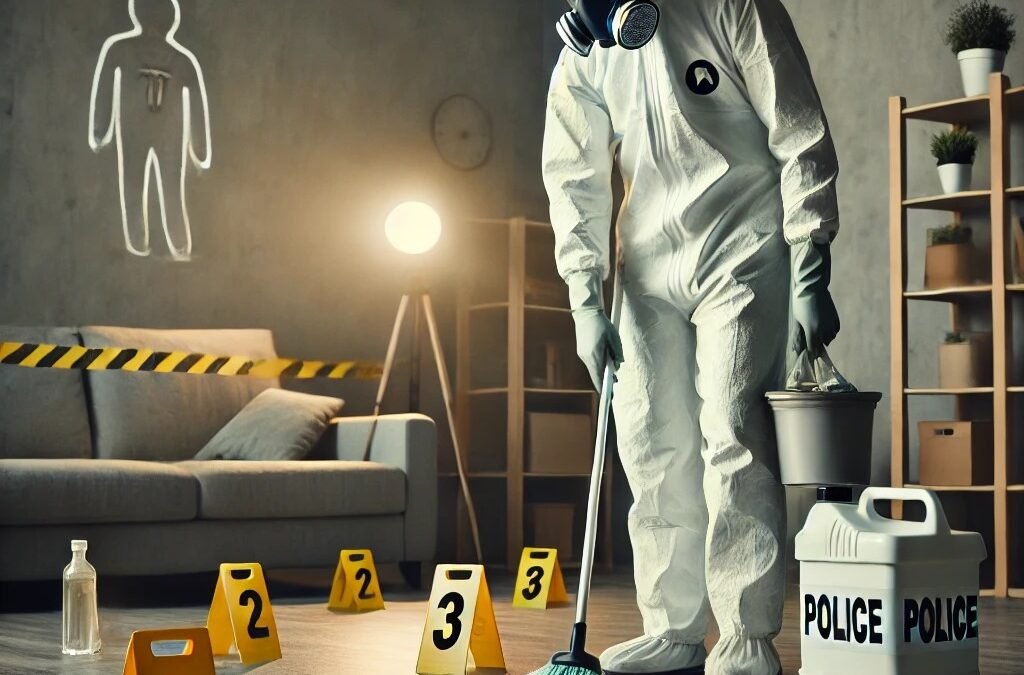When tragedy strikes, the aftermath often leaves a grim scene that must be handled with care, precision, and professionalism. This is where a Crime Scene Cleaner steps in, performing a vital service that not only addresses the physical remnants of a crime or accident but also restores a sense of safety and normalcy. While the role might sound straightforward, crime scene cleaning is a complex, demanding, and often misunderstood job that requires a specific set of skills and unwavering resolve.
Understanding the Role of a Crime Scene Cleaner
Contrary to popular belief, crime scene cleaners do not solely clean up after crimes. Their work also includes cleaning up after suicides, accidents, unattended deaths, and other traumatic events. They are called in to handle scenes that have been contaminated with blood, bodily fluids, chemicals, and other hazardous materials.
The main objective is to sanitize the area thoroughly, ensuring that it’s safe for habitation once again. Unlike regular cleaning, this job involves dealing with biohazards, which can pose serious health risks if not handled properly. Therefore, crime scene cleaners must adhere to strict protocols and guidelines set by health and safety agencies.
Why Professional Cleaning Services Are Essential
Cleaning up a crime or trauma scene is not something that just anyone can do. The affected areas often contain biohazardous materials, including bloodborne pathogens and other contaminants that can be harmful to health. Crime scene cleaners are specially trained to deal with these situations using specialized equipment and cleaning agents.
Here are a few reasons why professional crime scene cleaning services are indispensable:
- Health and Safety: Professionals are equipped with personal protective equipment (PPE) and have been trained to handle hazardous materials safely. This reduces the risk of exposure to pathogens like HIV, Hepatitis B, and other infectious diseases.
- Emotional Toll: For family members or loved ones, cleaning up after a traumatic event can be overwhelmingly distressing. Hiring a professional cleaner allows them to focus on their emotional recovery rather than dealing with the disturbing aftermath.
- Thorough Sanitation: Crime scene cleaners use industrial-grade disinfectants and cleaning techniques to thoroughly sanitize the affected area. They are trained to identify and eliminate all traces of contaminants, including those invisible to the naked eye.
Tools and Techniques Used by Crime Scene Cleaners
The work of a crime scene cleaner goes beyond just wiping down surfaces. It involves a meticulous process that ensures every potential hazard is removed and the area is restored to a safe condition. Here are some of the tools and techniques commonly used in this field:
- Personal Protective Equipment (PPE): Full-body suits, gloves, masks, and respirators protect cleaners from harmful substances they might encounter on the job.
- Industrial-Grade Cleaning Agents: These are stronger than regular household cleaners, designed to neutralize biological contaminants effectively.
- Specialized Equipment: Tools such as foggers, ozone machines, and steam cleaners are used to sanitize and deodorize spaces thoroughly.
- Containment and Disposal: Biohazardous waste must be properly contained and disposed of following legal regulations to prevent environmental contamination.
The Psychological Aspect of Crime Scene Cleaning
Being a crime scene cleaner is not just physically demanding; it also takes a psychological toll. These professionals regularly encounter distressing and often gruesome scenes. Maintaining emotional stability and resilience is essential, as they must approach each job with empathy and discretion while still carrying out their duties effectively.
Many crime scene cleaners undergo psychological training or participate in support groups to help them cope with the nature of their work. Some companies even provide access to counseling services to ensure their employees’ mental well-being.
Legal and Ethical Considerations
Crime scene cleaning is subject to various regulations and standards, particularly regarding the handling and disposal of biohazardous waste. Cleaners must be certified and comply with guidelines set by organizations such as the Occupational Safety and Health Administration (OSHA) and the Environmental Protection Agency (EPA).
Moreover, ethical considerations come into play. Crime scene cleaners often find themselves in homes or businesses during sensitive times. Respect for privacy, confidentiality, and the dignity of those affected is a cornerstone of their professional conduct.
Why Becoming a Crime Scene Cleaner Is Not for Everyone
While the job may seem intriguing, it’s not for the faint of heart. Crime scene cleaners must possess a strong constitution, both physically and emotionally. They need to be detail-oriented, compassionate, and willing to confront situations most people would rather avoid. For those who are drawn to this line of work, however, it can be incredibly rewarding to know they are providing an invaluable service to families and communities during their most vulnerable moments.
Crime scene cleaners are the unsung heroes who step into the aftermath of tragedy and chaos, working tirelessly to restore safety and cleanliness. Their role requires specialized knowledge, physical endurance, emotional resilience, and a strong commitment to helping others. As demanding as it is, crime scene cleaning is a profession rooted in empathy, serving as a crucial bridge between trauma and recovery.

